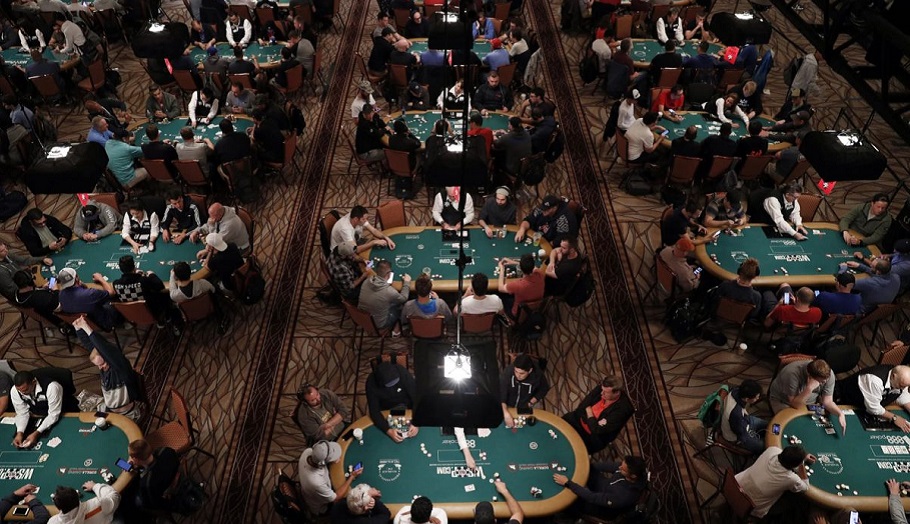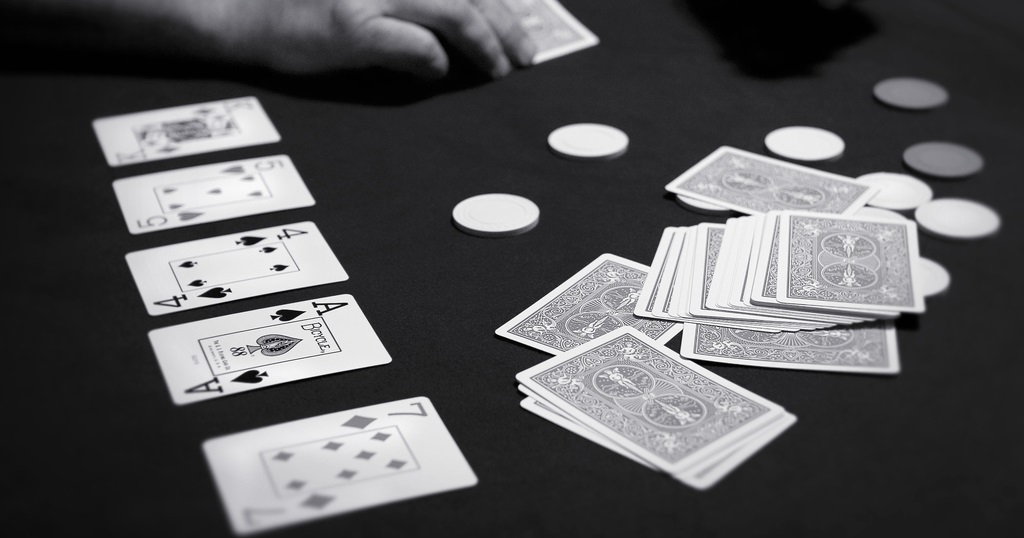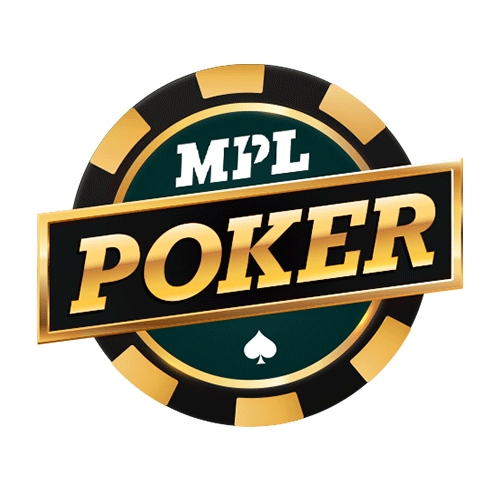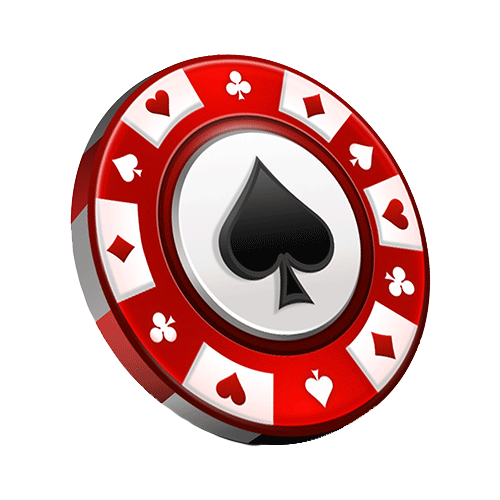 Poker
Poker
Big Stack University Tips – Poker Tournament Tips For Intermediate Players
There’s nothing better than having a trophy in your hand of the profession you really like. Professional players take part in tournaments for fame, more money, and titles. It’s like a dream come true! You might already know that cash games and tournaments are different in nature. And strategies applied might sound similar but they are not. It’s difficult to rectify mistakes when you’re playing in a tournament, however, you can be careful next time and win several stages if you’ll understand the key tips provided below by Big Stack University.
The transition between cash game and MTT
One of the dilemmas that most poker players go through is whether to play cash games or opt for a tournament. Even when both involve playing poker, on a lot many factors, they differ. Which might be a better alternative is usually a question that confuses people. Well, the answer is it depends on person to person, the time available with him/her, the amount of expertise, etc.
One does not have to strictly commit a specified amount of time in the case of cash games. However, when we talk about poker tournaments, the case differs. It can be a preferable choice for pro poker players for whom poker is a career. In a cash game, players start betting with a pre-set stack amount that is usually 100bb. However, if your opponent starts playing with a smaller stack then you will have to adjust your game accordingly. When the blind value increases, the stacks decrease resulting in fewer hands to play profitably. In the case of tournaments, the game starts with 20bb. Those playing in tournaments have skills to play in such situations profitably. They usually use Nash and ICM strategies to calculate profitable hands.
In the case of cash games, the variance is lesser than what it is in the case of playing in tournaments. A person can go on playing cash games without making any profits for around a month. However, in MTT, playing with no profit is possible for 6 months and this period can even go up to 1 year.
A proper infusion of both cash games and tournaments is a much better option for any player as it helps to be versatile and removing lots of leaks in one’s game. For instance, if you’ll only play tournaments, the only time you would play heads-up would be when you reach in top 2 of the tournament since that is going to happen a very small fraction of time. Your heads-up game would be weak, costing you tons of chips. Alternatively, if you’ll only play cash games, you will be puzzled in end stages of tournaments and your short-stacked game remain totally undeveloped. A player should start his career with cash game, with a due experience he should start playing tournaments. And later maintain a healthy balance between the two complimenting each other.

Navigating in middle stages of a tournament
Tournament rules won’t change but your strategy moves at every stage of the tournament. In the Middle stage, we are referring to the period when antes have just kicked in. As the game progresses in this stage, different people would have different stack sizes. Your game will change a lot with respect to your stack size and relative stack sizes.
This is the longest phase of the tournament and you won’t get any money if you finish in this stage of the tournament; i.e. you can’t win any money in this stage but you can lose money. So, survival has to be your sole concern. However, chips accumulated in this stage will help you eventually in your deep run in the tournament – let’s analyze how we will approach the game with different relative stack sizes.
Middle Stack Strategy – Big Stacks
- When you’ll successfully chip up in the tournament, say that you’re the chip leader or among the top two. Then, you’ll have a significant advantage over other players.
- You can easily trap those with medium or short-stacked tight players by raising or calling them because they can’t afford to lose their chips.
- Big stack is something to be coveted and needn’t be splashed around unnecessarily. Open up lots of pots, bluff a lot, but proceed with caution if opponent moves all-in for 3-bets you.
Middle Stack Strategy – Medium Stacks:
- Having a medium stack is challenging because you are at risk of either getting short-stacked or eliminated while playing against larger stacked opponents.
- Play cautiously. Value bet only with stronger hands.
- Value betting occurs when you put your opponents on a hand, and you’re sure that yours is better. You evaluate how much your opponent is willing to pay with their worst hands, and then bet accordingly. To maximize profits at the table, this is the most effective strategy.
- Your aim should be survival at all costs, putting pressure on shorter stacks, and avoid bigger ones. Maybe trapping big stack on our nutted ranges.
- Use position to our maximum advantage, for instance, drawing profitably, avoiding multiway action, and bluffing off the blinds from late position.

Middle Stack Strategy – Short Stacks:
- Once you reach this stage (10 BBs or less), your only options are fold or shove pre-flop. If you are at the upper end of this range, you can be a little selective and try to wait for a monster (AQ or better, JJs, or better). If you are at the bottom end (5 BBs or less), you are basically looking for the first opportunity to shove all-in – any pocket pair, any ace, any Broadway pocket.
- Even in this stage, try to avoid multi-way actions. If you have three people already in the pot then you may fold lots of Axs Kxs and medium pockets, YOU MAY ALSO AVOID SHOVING FROM INITIAL POSITIONS with weaker holdings as chances are very high that someone will call and you will encounter a stronger hand.
Chip accumulation is also an important aspect Medium Stack Strategy
- In tournaments, the value of chips changes every time a new level begins. It also changes according to everyone else’s stack, either above, below, or average.
- The chips also change in their actual cash value. When buying a starter pack every chip is worth the same value. After every elimination, chip value increases.
Some tactics of chip accumulation are:
- Steal blinds and antes
- Value betting: you have to play thousands of hands to master in value betting.
- Take advantage of tight players when the bubble nears by grabbing dead money with your bets and raises. Take notes of how your opponent reacts to a certain situation.
- Use and study blind levels (current blind levels) with respect to your stack size and do the same for the next half an hour, one hour, and 2 hours. Set imaginary short term, midterm, and long term goals with an assumption that you need 20 blinds at least at each level. If you are certain that you have a lot more chips than your midterm goal..it is quite clear that you are in a safe zone and you may pass lots of medium strength hands and dicey spots.
Using differential chip stacks to our advantage
Everyone starts with the same stack of chips. But how where are they going to land up depends upon the way they’re using their chips at every stage of the tourney. So here are few tips which will help you, take advantage of your stack size:
Play tight early: Wait for good opportunities with either bb before the flop or cheap flops with hands that have the potential to make nuts.
Forcing opponents to bluff: Fold equity is ver useful in tournaments. When rising blinds put pressure on players to accumulate their chips in a short period of time. Getaway with it by winning more to be in a better position. And that’s where the bubble strategy takes place.
Use the bubble to your advantage: Apply a lot of pressure by calling or reraising on tight players with short stacks, because they can’t afford to lose at a very critical stage. On the contrary, don’t try this technique on players with a better stack size than you. Because they can afford to look up to you without risking their tourney life.

Deal making
If players at the final table of the tournament decide to split the prize money by agreement, it is known to be deal-making. Once all the players have discussed the deal and decided to go forward with it, the deal tool will pop up and the tournament will be paused, presenting figures for each type of deal available:
ICM (Independent Chip Model): all the payout structure and prize tool are taking into account by ICM.
Equal split: remaining prize money is split between the remaining players.
It is imperative to understand that if you are one of the chip leaders, you will be losing a lot of money in deal-making. The same will happen if you know for a fact that remaining players are novices or at a much lower skill level than you. You should not go for deal-making multiway with the chip lead, conversely, you should take the deal instantly if you are one of the bottom stacks as you would get a lot more than your fair share.
Things to keep in mind while deal-making:
- Relative stack sizes
- Your position
- Opponent’s skill level
- Prize money being offered at current elimination and ICM.
Final thoughts
Developing a certain way of playing (aggressive most of the time) will take you a long way. Steal as many blinds as possible. However, never let your opponents get a catch on your patterns. Try to mix it up. Don’t be scared to challenge c-bets when you suspect your opponent is betting for the sake of betting. Also, take advantage of the tight players with short stacks who’re afraid of losing it all. Big Stack University has more such lessons for poker enthusiasts! For more such tips and tricks from them stay tuned to GutshotMagazine.com !
More News
Comments
Top 15 Poker Rooms
-
PokerDangal
Deposit with code GSTREFUND
Offer: Get 100% GST discount on deposits Register -
Natural8 India
Sign-up with Gutshot
Offer: 200% bonus up to ₹81,000 on first deposit Register -
Spartan Poker
Sign-up with code "GUTSHOT"
Offer: First deposit bonus up to 300% Register -
Junglee Poker
Sign-up and get bonus
Offer: Up to ₹50,000* Register -
BLITZPOKER
Deposit ₹200 with code 'FTDGSB' for 100% bonus
Offer: Register -
BatBall11 Poker
Sign-up with code GUTSHOT
Offer: Get ₹50 FREE Register -
WinZo Poker
Daily Winnings Up To ₹40 Crore!
Offer: Get ₹550 Joining Bonus For Free Register -
PokerSaint
Sign-up with code "GUT100"
Offer: Get ₹50 FREE (post KYC) Register


























Leave a Reply